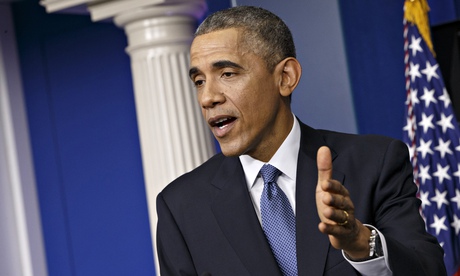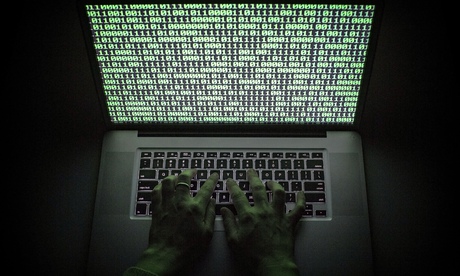A rolling programme of transatlantic cyber “war games” are to be conducted by British and US intelligence agencies to test their resilience in the face of mounting global cyber-attacks.
David Cameron and Barack Obama, who began two days of talks over dinner at the White House on Thursday night, will announce that as a first step a simulated attack will be targeted later in the year at banks in the City of London and Wall Street.
The “war game” against the financial sector, which will be carried out in co-operation with the Bank of England and other financial institutions, will be coordinated by a new joint “cyber-cell” that will be established by the two leaders to share information.
Agents from GCHQ and MI5 on the UK side and from the National Security Agency and the FBI on the US side are already working in the US division of the cell. This will be matched by a cyber-cell in the UK.
The joint announcement will be made by the president and the prime minister, who is the first European leader to meet Obama since the gun attacks in Paris last week, as they finalise their talks at the White House today. The White House and Downing Street have placed the threat of Islamist extremists in Syria, Iraq and in Europe and the dangers posed by cyber-warfare - both from criminals and states - at the top of the agenda for their talks.
Cameron, who is delighted that Obama has offered him priceless pre-election pictures at the White House, has agreed that their first announcement will cover one of the main themes of Obama’s penultimate state of the union address next week.
The president this week spoke of the “urgent and growing danger” posed by cyber-attacks, which was starkly illustrated by the destructive and intrusive attack on Sony Pictures.
Obama announced earlier this week that he would call for an all-embracing response in his address. In a speech on Tuesday at the National Cybersecurity Communications Integration Center, the president spoke of the need for a “shared mission” involving the government and the private sector. Warning that most of the US’s “critical infrastructure” is owned by the private sector and run on networks connected to the net, the president said: “Neither the government nor the private sector can defend the nation alone. It is going to have to be a shared mission.”
The prime minister said before his talks with Obama: “Just as we have worked with our closest ally, the US, to protect our people and our countries from traditional threats, so we must work together to defend ourselves from new threats like cyber-attacks. This is an evolving threat which poses a real risk to our businesses, and that’s why we’re taking our cooperation with the US to an unprecedented level. This is about pooling our effort so we stay one step ahead of those who seek to attack us.
“The joint exercises and training of our next generation of cyber-experts will help to ensure that we have the capability we need to protect critical sectors like our energy, transport and financial infrastructure from emerging threats.”
Cameron will also press Obama to put more pressure on the internet giants, such as Facebook and Twitter, to do more to cooperate with the intelligence agencies as they seek to monitor the communications of terror suspects. The prime minister outlined plans earlier this week to create a stronger legal framework to allow intelligence agencies to break into encrypted communications of suspects.











